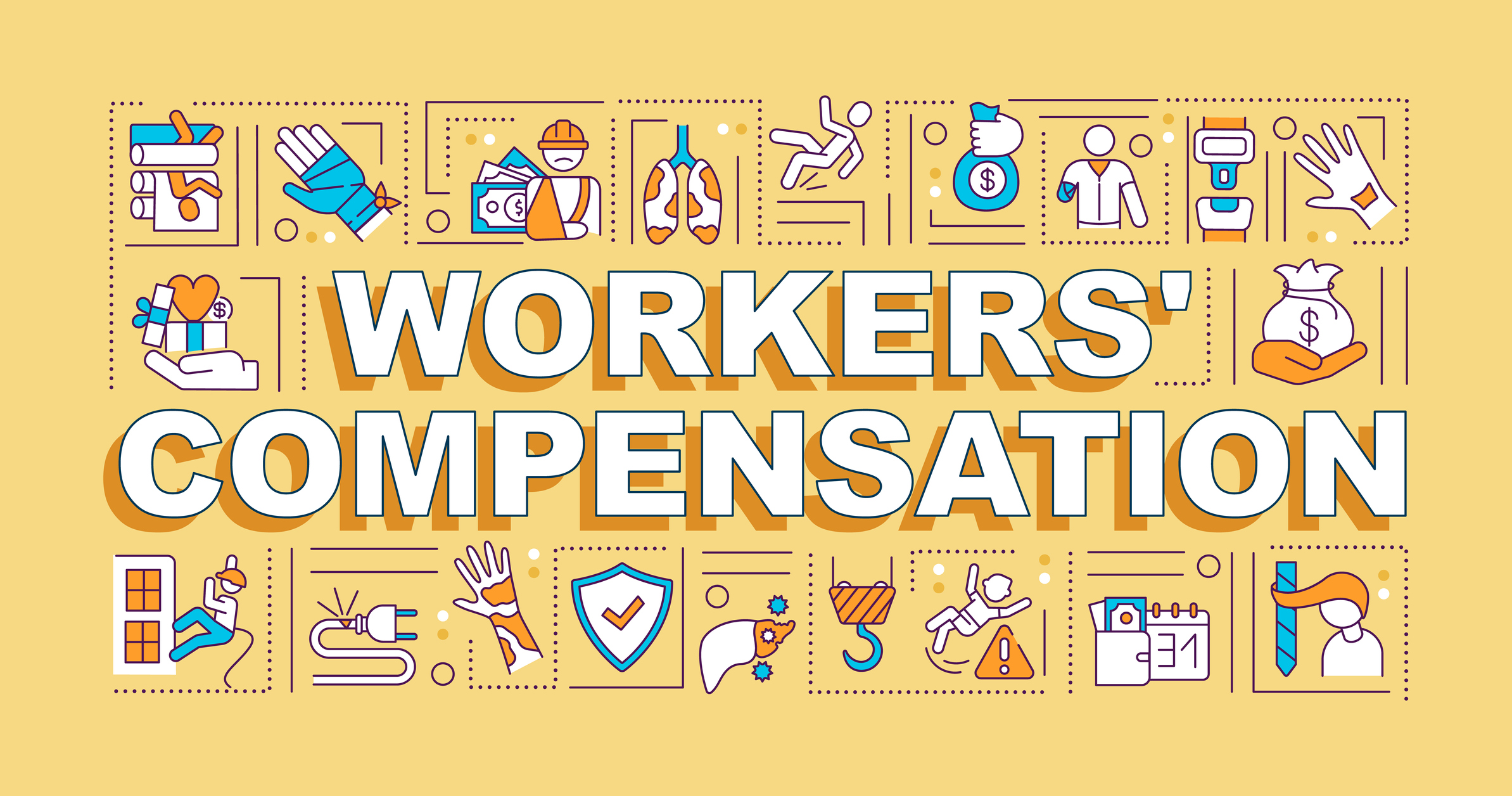When you hear the term “workers compensation insurance,” what comes to mind? Is it a labyrinth of paperwork and legal jargon, or perhaps a safety net for the unfortunate accidents that happen on the job? Whatever your initial thoughts, buckle up, because we’re about to embark on a journey through the world of workers compensation insurance that’s as informative as it is entertaining.
- The Fun Guide to Getting Insurance Quotes Online 2024
- Unraveling Term Life Insurance Quotes: A Fun and Informative Guide 2024
- Discovering biBERK Insurance: The Ultimate Guide 2024
- Understanding Homeowners Insurance: A Comprehensive Guide 2024
- Best Guide to Condo Insurance 2024
Table of Contents
What is Workers Compensation Insurance?
First things first: what exactly is workers compensation insurance? At its core, workers compensation insurance is a form of insurance providing wage replacement and medical benefits to employees injured in the course of employment. In exchange for these benefits, employees relinquish their right to sue their employer for negligence. Essentially, it’s a win-win situation – if there’s an accident, the worker gets the care they need without the messy court battles, and the employer can focus on running their business without the constant fear of litigation.

A Brief History of Workers Compensation Insurance
To understand why workers compensation insurance is so important today, we need to take a quick trip back in time. In the early 20th century, the Industrial Revolution was in full swing, and workplaces were, quite frankly, hazardous. Think of it as the Wild West of labor – injuries were common, and there was little protection for workers. This led to a significant number of lawsuits, which clogged the courts and strained the relationships between employers and employees.
Fast forward to 1911, when Wisconsin became the first state in the United States to implement a workers compensation law. This groundbreaking legislation set the precedent for other states to follow, and by the 1940s, almost all states had some form of workers compensation law in place. For more historical insights, visit the U.S. Department of Labor’s official site.
How Does Workers Compensation Insurance Work?
Workers compensation insurance operates on a relatively straightforward principle: if an employee gets injured while performing their job duties, the insurance policy covers the cost of medical expenses and a portion of their lost wages. But let’s dive a little deeper into the specifics:
Coverage and Benefits
Workers compensation insurance typically covers the following:
- Medical Expenses: From doctor visits and hospital stays to medication and rehabilitation, all necessary medical treatments are covered.
- Lost Wages: If the injury prevents the employee from working, the insurance compensates a portion of their lost income, usually around two-thirds of their average wage.
- Disability Benefits: If the injury leads to a temporary or permanent disability, the insurance provides additional benefits based on the severity of the disability.
- Death Benefits: In the unfortunate event of a work-related death, the insurance provides benefits to the employee’s dependents.
Filing a Claim
When an injury occurs, the employee must notify their employer as soon as possible. The employer then reports the injury to their workers compensation insurance carrier, which initiates the claim process. It’s crucial for both parties to adhere to the specified timelines and procedures to ensure a smooth claim process. For more detailed guidelines, check out the Occupational Safety and Health Administration (OSHA) website.
The Importance of Workers Compensation Insurance
Why is workers compensation insurance so vital for both employers and employees? Let’s break it down:
For Employers
- Legal Protection: With workers compensation insurance, employers are protected from most lawsuits arising from workplace injuries.
- Financial Security: The insurance covers the costs associated with workplace injuries, preventing potentially devastating financial losses.
- Employee Morale: Knowing that they are protected, employees are more likely to feel secure and valued, which can boost overall morale and productivity.
For Employees
- Peace of Mind: Employees can perform their duties without the constant fear of financial ruin in case of an injury.
- Comprehensive Care: Workers compensation insurance ensures that injured employees receive the necessary medical treatment and rehabilitation.
- Financial Stability: The compensation for lost wages helps maintain financial stability during the recovery period.
Common Myths About Workers Compensation Insurance
Despite its importance, there are several misconceptions about workers compensation insurance. Let’s debunk some of the most common myths:

Myth 1: Workers Compensation Insurance is Expensive
Many employers assume that workers compensation insurance is prohibitively expensive. While it’s true that premiums can vary based on industry and claim history, the cost is generally manageable and far less than the potential costs of a lawsuit or severe injury.
Myth 2: Only Dangerous Jobs Require Workers Compensation
While high-risk industries like construction and manufacturing are more likely to file claims, workers compensation insurance is crucial for all businesses. Accidents can happen anywhere, from slipping on a wet floor in an office to repetitive strain injuries from typing.
Myth 3: Employees Can Only Claim for Physical Injuries
Workers compensation also covers occupational diseases and mental health issues that are a direct result of job duties. Conditions like carpal tunnel syndrome, stress-related disorders, and respiratory illnesses from workplace exposure are all covered.
Navigating the Complexities of Workers Compensation Insurance
Workers compensation insurance isn’t a one-size-fits-all policy. It varies significantly by state, industry, and individual business circumstances. Understanding these nuances is crucial for both employers and employees.
State-Specific Regulations
Each state in the U.S. has its own set of rules and regulations regarding workers compensation insurance. These regulations dictate everything from the coverage requirements to the claim filing process. Employers must familiarize themselves with their state’s specific laws to ensure compliance. For state-specific information, visit the National Association of Insurance Commissioners (NAIC).
Industry-Specific Considerations
Different industries have different risks, which are reflected in the workers compensation insurance premiums. High-risk industries like construction, transportation, and manufacturing generally have higher premiums due to the increased likelihood of injuries. Conversely, industries like finance and technology may have lower premiums. However, even within low-risk industries, it’s essential to assess the specific risks and ensure adequate coverage.
Choosing the Right Policy
Selecting the right workers compensation insurance policy can be challenging. Employers should work with experienced insurance brokers who understand their industry’s specific risks and can tailor a policy to meet their needs. Additionally, regular reviews of the policy and claims history can help optimize coverage and control costs.
How to Reduce Workers Compensation Insurance Costs
While workers compensation insurance is necessary, there are ways to manage and even reduce the associated costs:
Implement Safety Programs
One of the most effective ways to reduce workers compensation insurance costs is by implementing comprehensive safety programs. These programs should focus on identifying potential hazards, providing regular training, and promoting a culture of safety within the workplace. For more tips on creating a safe workplace, visit OSHA’s official site.
Encourage Early Reporting
Encouraging employees to report injuries and near-misses as soon as they occur can prevent minor issues from becoming major claims. Early intervention can also lead to quicker recovery times and lower medical costs.
Return-to-Work Programs
Developing return-to-work programs that help injured employees transition back to their jobs can reduce the duration of disability benefits. These programs can include modified duties, flexible schedules, and additional support to accommodate the employee’s recovery.
Review Claims Regularly
Regularly reviewing and analyzing workers compensation claims can help identify trends and areas for improvement. By understanding the root causes of injuries, employers can implement targeted measures to prevent future incidents.
A Touch of Humor: Workers Compensation Stories
While workers compensation insurance is a serious topic, there’s no harm in finding a bit of humor in some of the claims. Here are a few amusing (and real) workers compensation claims:
The Case of the Flying Coworker
One employee claimed that he was injured when a coworker, attempting to jump over a puddle, landed on him instead. The result? A sprained ankle and a lesson in why puddles are not meant for leaping.
The Unfortunate Stapler Incident
Another worker reported a bizarre injury involving a stapler. While attempting to staple a document, the stapler jammed, causing the employee to apply excessive force. The stapler finally gave way, and the employee ended up stapling their own hand. Moral of the story: don’t mess with office supplies.
The Misadventure of the Overzealous Office Cleaner
An enthusiastic office cleaner decided to polish the floor to a mirror-like shine. Unfortunately, the next morning, the overly polished floor caused multiple employees to slip and fall. While the cleaner’s dedication to cleanliness was admirable, it was a slippery slope to a workers compensation claim.
For more lighthearted stories and official information, check out the National Safety Council’s website.
Conclusion
Workers compensation insurance is an essential aspect of any business, providing crucial protection for both employers and employees. By understanding the intricacies of this insurance, debunking common myths, and implementing cost-saving measures, businesses can create a safer, more productive work environment.
Remember, while the topic may seem dry at first, there’s always room for a bit of humor and a lot of valuable information. For more in-depth resources and official guidelines, be sure to visit the U.S. Department of Labor and OSHA. And next time you hear a funny workers compensation story, just remember: safety first, humor second!
Note: The links provided lead to official sites where you can find more detailed and up-to-date information on workers compensation insurance and related topics.


1 comment
[…] Understanding Workers Compensation Insurance: The Essential Guide 2024 […]